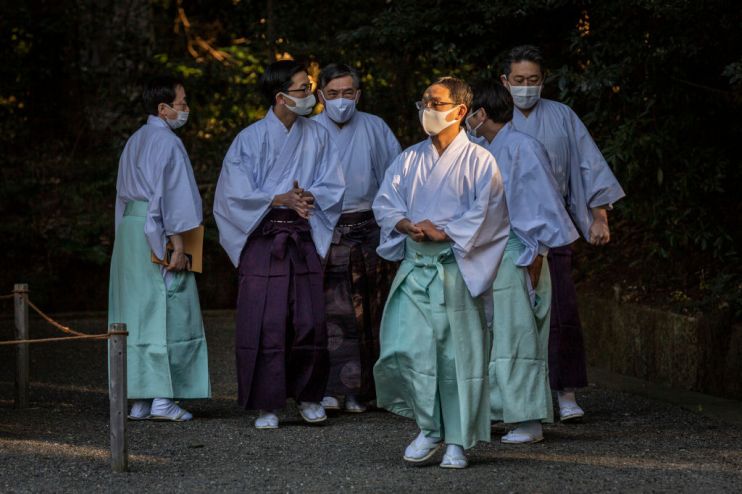Coronavirus: Latest updates on lockdowns, vaccines and Covid mutations around the world

Countries around the world continue to grapple with rising coronavirus rates, as two new mutations of the virus have sparked calls for fresh restrictions across the globe.
German politicians have called for a three-week lockdown extension, as current measures fail to stem ballooning cases across the country.
Tight restrictions in place including the closure of restaurants and shops are due to end on 10 January, but have had little effect. Last week, Germany reported more than 1,000 daily coronavirus-related fatalities, marking the highest death toll since the start of the pandemic.
Seven-day infection rates are currently at 140 per 100,000 people — well beyond the target of 50 that politicians have earmarked as safe enough to ease current restrictions.
German officials reportedly agreed that the current lockdown should be extended during a video conference over the weekend, according to local media. Chancellor Angela Merkel is set to hold a meeting between the country’s 16 state premiers tomorrow on Germany’s lockdown.
EU
Meanwhile, France’s vaccination efforts were blasted as a “disaster” by health officials over the weekend after just 350 people in a population of more than 67m were inoculated against the virus in the first week of the vaccine rollout.
That compares with the UK’s 1m vaccinations so far and Germany’s 238,000, despite France receiving 500,000 doses of the Pfizer/Biontech vaccine.
The National Academy of Medicine, a doctors’ organisation, said there was “no more time to waste”, as coronavirus infections and deaths in the country continue to creep back up the charts.
The European Medicines Agency (EMA) approved the Pfizer vaccine on 21 December with the roll-out coordinated by the European Commission.
The EU has secured enough doses to vaccinate the bloc’s 450m population, with doses set to be allocated based on countries’ population size.
So far, Denmark has the highest vaccination rate among EU member states, with more than 45,800 of the country’s 5.8m residents having already received the jab.
Queen Margrethe of Denmark became the first royal to receive the Covid-19 vaccine after the 80-year-old monarch was inoculated on New Year’s Day, according to a statement issued by the Royal Court this morning.
Switzerland will begin its broad immunisation programme today, while the Netherlands has been criticised for its late start, with vaccines not due to be rolled out until 8 January.
Asia
Meanwhile, Japan this morning toyed with the prospect of declaring a state of emergency, as the country grapples with soaring infection rates.
Prime Minister Yoshihide Suga said an emergency declaration was being considered for Tokyo, along with the capital’s three neighboring prefectures of Chiba, Saitama and Kanagawa.
Japan recorded 3,150 new Covid cases yesterday and 51 deaths — more than four times the numbers seen in the peak of the first wave.
It comes after Japan last week confirmed cases of the new coronavirus mutation first identified in the UK. The discovery prompted an immediate ban on all international arrivals to the country over the weekend.
The new coronavirus strain has continued to stoke alarm across the globe, with China yesterday confirming the mutation has arrived on its shores. The Center for Disease Control and Prevention (CDC) of South China’s Guangdong Province said the new B-117 variant had reached the country through a Chinese student who returned from the UK on 4 December.
But while the new coronavirus mutation continues to wreak havoc throughout the UK and further afield, ministers have expressed concerns that a third strain may present problems for global vaccination efforts.
Health secretary Matt Hancock this morning said he was “incredibly worried” about the third Covid strain, thought to have originated in South Africa.
“This is a very, very significant problem,” Hancock told the BBC’s Today programme. “In fact I spoke to my South African opposite number over Christmas, and one of the reasons they know they’ve got a problem is because, like us, they have an excellent genomic scientific capability, to be able to study the details of the virus. And it is even more of a problem than the UK new variant.”